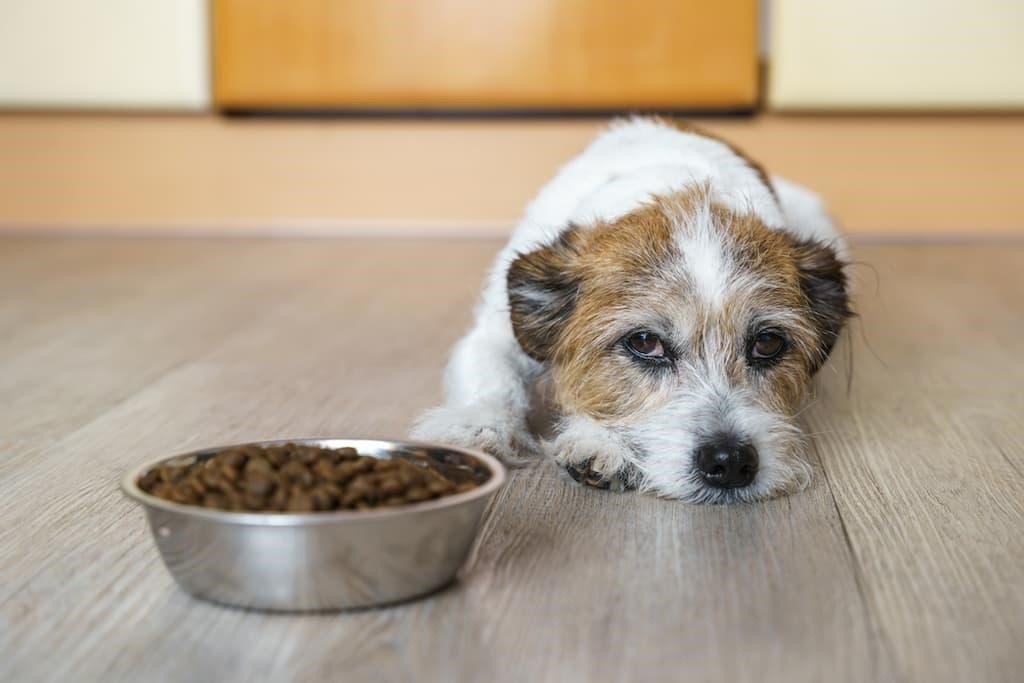Signs of Bad Gut Health in Dogs: What to Look For and How to Fix It
A healthy gut is crucial for your dog's overall well-being. Just like in humans, a dog's digestive system plays a vital role in their health, affecting everything from their immune system to their mood. However, many pet owners may not recognize the signs of poor gut health in their furry friends. Now, we will explore the key indicators of bad gut health in dogs, how to identify them, and effective ways to improve your dog's digestive wellness.
Understanding Dog Gut Health
A dog's gut is home to trillions of microorganisms, collectively known as the gut microbiome. This complex ecosystem of bacteria, fungi, and other microbes is essential for proper digestion, nutrient absorption, and immune function. When the balance of this microbiome is disrupted, it can lead to various health issues, affecting not just the digestive system but the entire body.
What Are the Common Signs of Poor Gut Health in Dogs?
Recognizing the signs of digestive issues in your dog is the first step towards addressing the problem. Here are some key indicators to watch for:
1. Digestive Disturbances
Diarrhea: Loose, watery stools are a common sign of gut imbalance. If your dog experiences frequent or persistent diarrhea, it is time to investigate their gut health.
Constipation: Difficulty passing stools or infrequent bowel movements can also indicate digestive issues.
Vomiting: While occasional vomiting might not be cause for concern, frequent or chronic vomiting could signal an underlying gut problem.
2. Changes in Appetite and Weight
Loss of Appetite: If your usually food-motivated dog suddenly loses interest in meals, it could be due to digestive discomfort.
Unexplained Weight Loss: Despite eating normally, if your dog is losing weight, it might indicate poor nutrient absorption due to gut issues.
3. Skin and Coat Problems
Dull Coat: A healthy gut contributes to a shiny, healthy coat. If your dog's fur looks lackluster, it could be a sign of nutritional deficiencies caused by poor gut health.
Skin Irritations: Allergies and skin problems can often be linked to gut health issues.
4. Behavioral Changes
Lethargy: If your dog seems unusually tired or lacks energy, it could be due to digestive discomfort or nutrient deficiencies.
Increased Anxiety or Irritability: The gut-brain connection in dogs means that digestive issues can affect mood and behavior.
5. Bad Breath and Dental Issues
Persistent Bad Breath: While not always directly related to gut health, chronic bad breath can sometimes indicate digestive problems.
6. Excessive Gas
Flatulence: Frequent or particularly smelly gas can be a sign of poor digestion or an imbalanced gut microbiome.
Identifying the Root Causes

Several factors can contribute to poor gut health in dogs:
- Diet: Low-quality food or sudden dietary changes can disrupt the gut microbiome.
- Stress: Just like in humans, stress can negatively impact a dog's digestive system.
- Medications: Antibiotics, while sometimes necessary, can disrupt the balance of gut bacteria.
- Parasites: Intestinal parasites can cause significant damage to the gut.
- Underlying Health Conditions: Certain diseases can affect gut health as a secondary symptom.
How to Improve Your Dog's Gut Health?
Addressing gut health issues in dogs often requires a multifaceted approach. Here are some effective strategies:
1. Dietary Adjustments
High-Quality, Balanced Diet: Choose dog foods that are rich in nutrients and easily digestible.
Probiotics and Prebiotics: These supplements can help restore and maintain a healthy gut microbiome.
Gut-Friendly Foods for Dogs
|
Food Type |
Benefits |
|
Pumpkin |
High in fiber, aids digestion |
|
Bone Broth |
Soothes the gut lining |
|
Yogurt |
Contains beneficial probiotics |
|
Sweet Potato |
Rich in nutrients and fiber |
|
Salmon |
Omega-3 fatty acids reduce inflammation |
2. Regular Exercise
Physical activity can help stimulate digestion and reduce stress, both of which are beneficial for gut health.
3. Stress Reduction
Identify and minimize sources of stress in your dog's environment. Consider calming aids or behavioral training if necessary.
4. Proper Hydration
Ensure your dog has constant access to fresh, clean water to support digestive health.
5. Regular Veterinary Check-ups
Routine health checks can help catch and address gut health issues early.
6. Natural Supplements
Certain supplements like digestive enzymes or herbal remedies may be beneficial, but always consult with your veterinarian before introducing new supplements.
When to Seek Veterinary Care?

While some minor digestive issues can be managed at home, certain symptoms warrant immediate veterinary attention:
- Severe or prolonged diarrhea
- Frequent vomiting
- Blood in stool or vomit
- Significant weight loss
- Extreme lethargy or weakness
- Signs of abdominal pain
Preventing Future Gut Health Issues
Maintaining good gut health is an ongoing process. Here are some tips for long-term digestive wellness:
- Consistent Diet: Avoid frequent changes in your dog's food.
- Regular Deworming: Follow your vet's recommendations for parasite prevention.
- Minimize Antibiotic Use: Only use antibiotics when absolutely necessary and as prescribed by your vet.
- Manage Stress: Create a calm, stable environment for your dog.
- Regular Exercise: Maintain a consistent exercise routine.
FAQs
Q: Can poor gut health in dogs lead to behavioral issues?
A: Yes, there is a strong connection between gut health and behavior in dogs. An imbalanced gut microbiome can affect mood and potentially lead to anxiety or irritability.
Q: How long does it take to improve a dog's gut health?
A: The timeline can vary depending on the underlying issue and the treatment approach. Some dogs may show improvement in a few days, while others might take several weeks or months.
Q: Are certain dog breeds more prone to gut health issues?
A: While any dog can experience gut health problems, some breeds like German Shepherds and Great Danes are more predisposed to certain digestive issues.
Q: Can I give my dog human probiotics?
A: It is best to use probiotics specifically formulated for dogs. Human probiotics may not contain the right strains of bacteria for canine gut health.
Q: How does age affect a dog's gut health?
A: As dogs age, their digestive system can become less efficient. Senior dogs may require dietary adjustments and more careful monitoring of their gut health.
Conclusion
Maintaining good gut health is crucial for your dog's overall well-being. By recognizing the signs of poor gut health early and taking proactive steps to address them, you can help ensure your furry friend leads a happy, healthy life. Remember, every dog is unique, so what works for one may not work for another. Always consult with your veterinarian for personalized advice on improving and maintaining your dog's gut health.
Sources-
https://bettervet.com/resources/pet-health-care/digestive-issues-in-dogs
https://www.earthbuddypet.com/eb-blog/signs-of-poor-gut-health-in-dogs/







